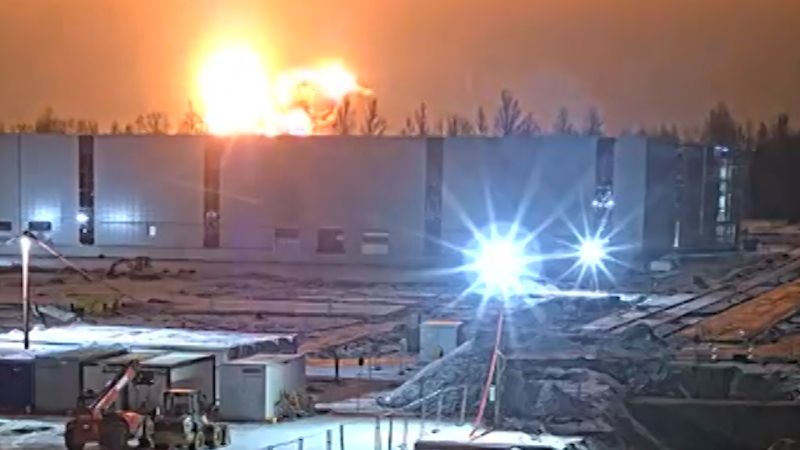Trump wants to visit China again after he takes office: report
German leaders float sabotage questions in deadly DHL plane crash in Lithuania


German leaders raised the possibility that a fiery cargo plane crash in Lithuania on Monday was the result of sabotage or hybrid warfare.
The cargo plane was flying from Leipzig, Germany, and was due to land at Vilnius Airport when it crashed a few kilometers from the runway. The plane skidded on the ground for several hundred meters before hitting a residential home, authorities in Lithuania said.
Asked on Monday evening whether the crash was the result of hybrid warfare, German Chancellor Olaf Scholz told public broadcaster ZDF: “We are looking at this closely, we can’t say at the moment, but it could be so – there are very many bad forms of hybrid warfare that we are seeing in Germany.”
Scholz said the cause of the crash “needs to be investigated closely. But we won’t make an accusation until we can prove it.”
His comments follow similar remarks by Foreign Minister Annalena Baerbock who, according to Reuters, told reporters at a G7 summit: “The fact that we, together with our Lithuanian and Spanish partners, must now seriously ask ourselves whether this was an accident (or) another hybrid incident shows what volatile times we are currently living in, even in the center of Europe.”
On Tuesday, Lithuanian authorities downplayed the prospect, insisting that no evidence pointing to sabotage had yet been uncovered. “Our initial information does not indicate that we need to be investigating more serious actions,” Prosecutor Arturas Urbelis said in a statement, according to Reuters.
“We might find signs of activities of other kinds as we investigate,” he added.
The US National Transportation Safety Board is sending its own personnel to assist with the investigation, Reuters reported, alongside representatives from Boeing and the US Federal Aviation Administration.
Footage from a nearby security camera shows the plane descending, before dipping out of view behind a building. Moments later, a large fireball can be seen in the sky rising from behind the building, followed by a plume of black smoke.
One crew member died in the crash. Three others on board the flight, including the pilot, survived, along with 12 people in the house who were safely evacuated, according to local authorities.
Lithuania’s Counter-intelligence chief Darius Jauniskis told reporters at a news conference: “We cannot reject the possibility of terrorism. … But at the moment we can’t make attributions or point fingers, because we don’t have such information.”
Earlier this month, the Wall Street Journal reported that incendiary devices which ignited in Leipzig, Germany and the United Kingdom in July were part of a covert Russian operation that aimed to start fires aboard cargo and passenger flights heading to the US and Canada. Some European officials later backed those allegations, which Moscow denied.
“I can state that this is part of unconventional kinetic operations against NATO countries that are being undertaken by the Russian military intelligence,” Kestutis Budrys, a national security adviser to Lithuanian President Gitanas Nauseda, told Reuters after the WSJ report.
“We note that these operations are being escalated: their focus is moving … to harming infrastructure and actions that could end up killing people,” Budrys said.
Speaking at a news conference, Kremlin spokesperson Dmitry Peskov called the WSJ’s reporting “unintelligible hoaxes which are never supported by any credible information.”
DHL said the plane “made a forced landing about one kilometer from VNO Airport.” It confirmed four people were onboard. “The cause of the accident is still unknown, and an investigation is underway,” DHL said.
The plane was a Boeing 737-400, according to a statement from Swiftair.
According to the Vilnius mayor, Valdas Benkunskas, the plane narrowly missed hitting the house directly, crashing instead into the nearby courtyard, LRT reported.
The head of the Lithuanian Police, Arūnas Paulauskas, said the incident was “most likely due to a technical fault or a human error” but that terrorism “cannot be ruled out,” according to LRT.
This story has been updated with additional developments.











